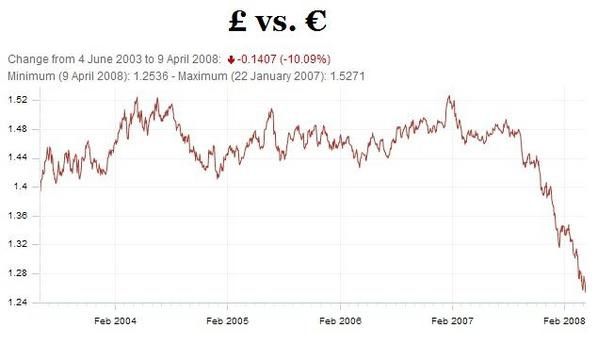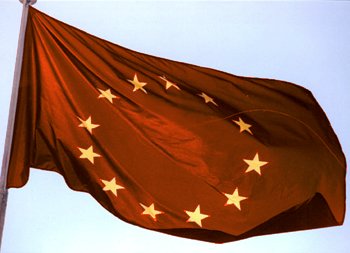olivier carbone
Consul


 Nombre de messages : 3913 Nombre de messages : 3913
 |  Sujet: Anglo Disease (maladie anglo-hollandaise) Sujet: Anglo Disease (maladie anglo-hollandaise)  Jeu 1 Mai - 16:04 Jeu 1 Mai - 16:04 | |
| http://www.dailykos.com/story/2008/4/7/174244/7970/444/491802 - Citation :
- Anglo Disease: the financial press catches on
by Jerome a Paris
Mon Apr 07, 2008 at 02:51:03 PM PDT
The Financial Times, Europe's main business paper, is inching ever closer to adopting my concept of the Anglo Disease, this time under the byline of John Plender, one of its regular editorialists. In a pretty long and detailed article about rising inequality, he makes many of the points I've been making in my Anglo Disease series.
* Jerome a Paris's diary :: ::
*
First, some quotes to defend the moniker I've chosen, as I know that some of you don't like it and find it unpleasant or even racist. (As a reminder, it is meant as a play on the "Dutch Disease", the economic ill coming from the brutal dominance of a natural resource sector like oil&gas in an open economy). The fact is, the financial capitalism that has been pushed on all of us over the past 30 years has a very obvious Anglo-American origin, and it is means to benefit Wall Street and the City of London over everybody else. That the "everybody else" also includes Main Street does not prevent the financiers to brag about the wonderfulness of the UK and US economies thanks to their magic.
So here goes the FT:
Income inequality in the US is at its highest since that most doom-laden of years: 1929. Throughout the main English-speaking economies, earnings disparities have reached extremes not seen since the age of The Great Gatsby.
(...)
In the 1930s, it ended with bank failures and the Great Depression. Now, after decades of "financialisation" in the US and other Anglophone economies, whereby financial services have increased their share of gross domestic product, banks are being bailed out - using public money - in an effort to ensure the same does not happen again.
(...)
The question is what will happen to wealth creation, stock market valuations and economic growth if, as seems increasingly likely, the public's tolerance of income inequality and what is loosely called the Anglo-American model of free-market capitalism wears thin.
The name - Anglo Disease - fits like a glove to these repeated descriptions of the Anglo- American financial capitalism model.
But, more interestingly, the article provides explicitly, for the first time as far as I can ascertain, the explication that I've been using as to why this model was tolerated for so long:
Liberal economic policies looked attractive to pragmatic left-of-centre politicians because they appeared to deliver high rates of economic growth.
(...)
But what was it that made this long period of growing inequality and stagnant incomes for all but the few tolerable for the voters? The answer is that in all the big English-speaking countries, living standards became very detached from incomes. In a period of stable, low-inflationary economic growth known to economists as "the great moderation", low and middle income people readily took on more debt, while running down their savings.
Rising asset prices, especially in the housing market, created a sense of increasing wealth regardless of income.
The great swindle of the rich looting the economy by capturing real incomes while hiding it by encouraging people to take on debt is becoming understood as such. Well, it's not labelled as a swindle, but it's already described as what it is - a diversion, whereby consumption was made possible by debt instead of by income.
Suddenly all that has changed and, with it, the political calculus. The collapse of the American housing market has left negative equity in its wake. For many, the cost of living is rising faster than wages. Houses can no longer be used as cash dispensers and savings are having to be rebuilt. Financialisation is going into reverse and the financial sector is no longer able to supercharge economic growth.
This is the Anglo Disease: the moment of reckoning, the realization that the "supercharged economic growth" is no longer around. The next step will be to acknowledge that it never really existed, except for a happy few.
But let's take it one step at a time...
| |
|
olivier carbone
Consul


 Nombre de messages : 3913 Nombre de messages : 3913
 |  Sujet: Re: Anglo Disease (maladie anglo-hollandaise) Sujet: Re: Anglo Disease (maladie anglo-hollandaise)  Jeu 1 Mai - 16:06 Jeu 1 Mai - 16:06 | |
| Ca ne va pas fort pour la monnaie britannique.  Ce graphe, établi d'après les données de la BCE, montre un brutal décrochage de la livre sterling face à l'euro, amorcé l'été dernier, c'est-à-dire pile au moment de l'éclatement de la bulle des subprime. Aujourd'hui, l'euro vaut 0,80 £, soit, pour utiliser une conversion plus parlante, la livre vaut 8 francs. On ne voit pas pourquoi la tendance ne se prolongerait pas au moins jusqu'à l'été prochain : cela ferait arriver la livre au cours historique de un euro exactement, et éventuellement plonger sous ce niveau. Voilà qui ne va pas arranger l'amour-propre de nos voisins d'Outre-Manche. L'économie britannique n'avait pas besoin de cela. Elle est en effet contaminée depuis plusieurs années par la terrible maladie anglo-hollandaise : l'hypertrophie de ses secteurs pétro-gazier et financier a désséché quasiment toute l'activité industrielle du Royaume, car on gagnait plus, en tant que particulier comme en tant qu'entreprise, à s'occuper de finance, d'immobilier ou d'énergie. Maintenant que la finance n'a plus la cote et que l'immobilier s'effondre, il ne reste plus que l'énergie comme destination porteuse. Mais les champs de la Mer du Nord s'épuisent, les centrales électriques sont vétustes et le Royaume-Uni se trouve aujourd'hui dans la situation - inimaginable il y a quelques années - de devoir importer du gaz naturel après vingt ans d'exportations massives et d'acheter en catastrophe des centrales nucléaires aux froggies. Car il est hors de question d'investir dans d'autres centrales au gaz, et encore moins dans des centrales au charbon, vu l'envolée des prix sur ce sale combustible. Il reste bien un peu de charbon dans les houillères anglaises, mais son coût d'extraction est prohibitif, contrairement aux USA qui en font toujours une source d'énergie d'avenir. Côté transports, la situation n'est guère plus reluisante : le système ferroviaire britannique n'a pas retrouvé sa prestance d'avant les années Thatcher, et les compagnies aériennes low cost qui l'ont concurrencé doivent compter les jours avant leur faillite annoncée pour cause de pétrole cher... et de clientèle subitement moins dépensière. Certains évoqueront l'argument positif classique lorsqu'une monnaie se dévalue : cela favorise les exportations. Mais qu'est-ce que le Royaume-Uni peut encore nous vendre... à part des dettes ? | |
|
